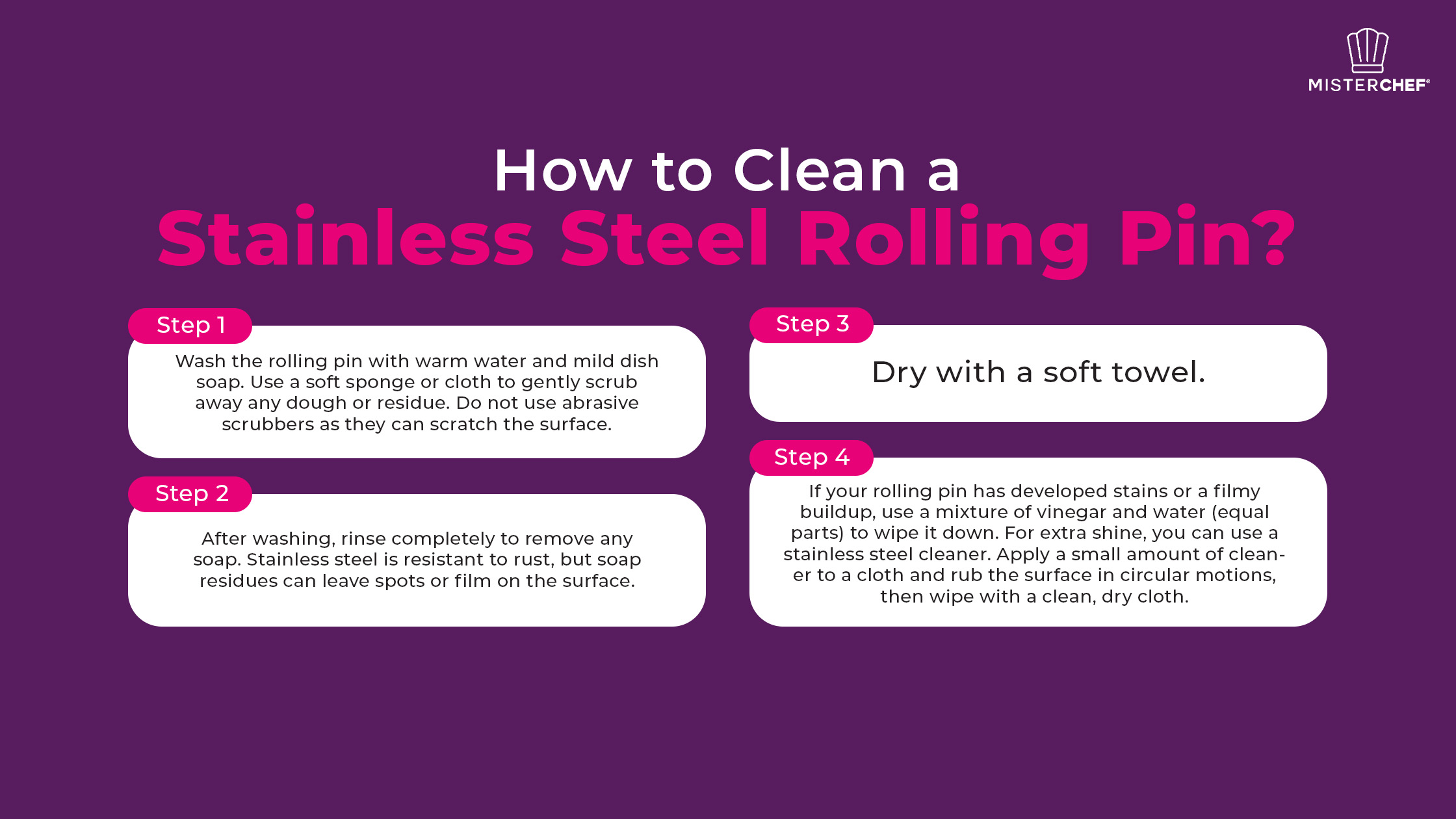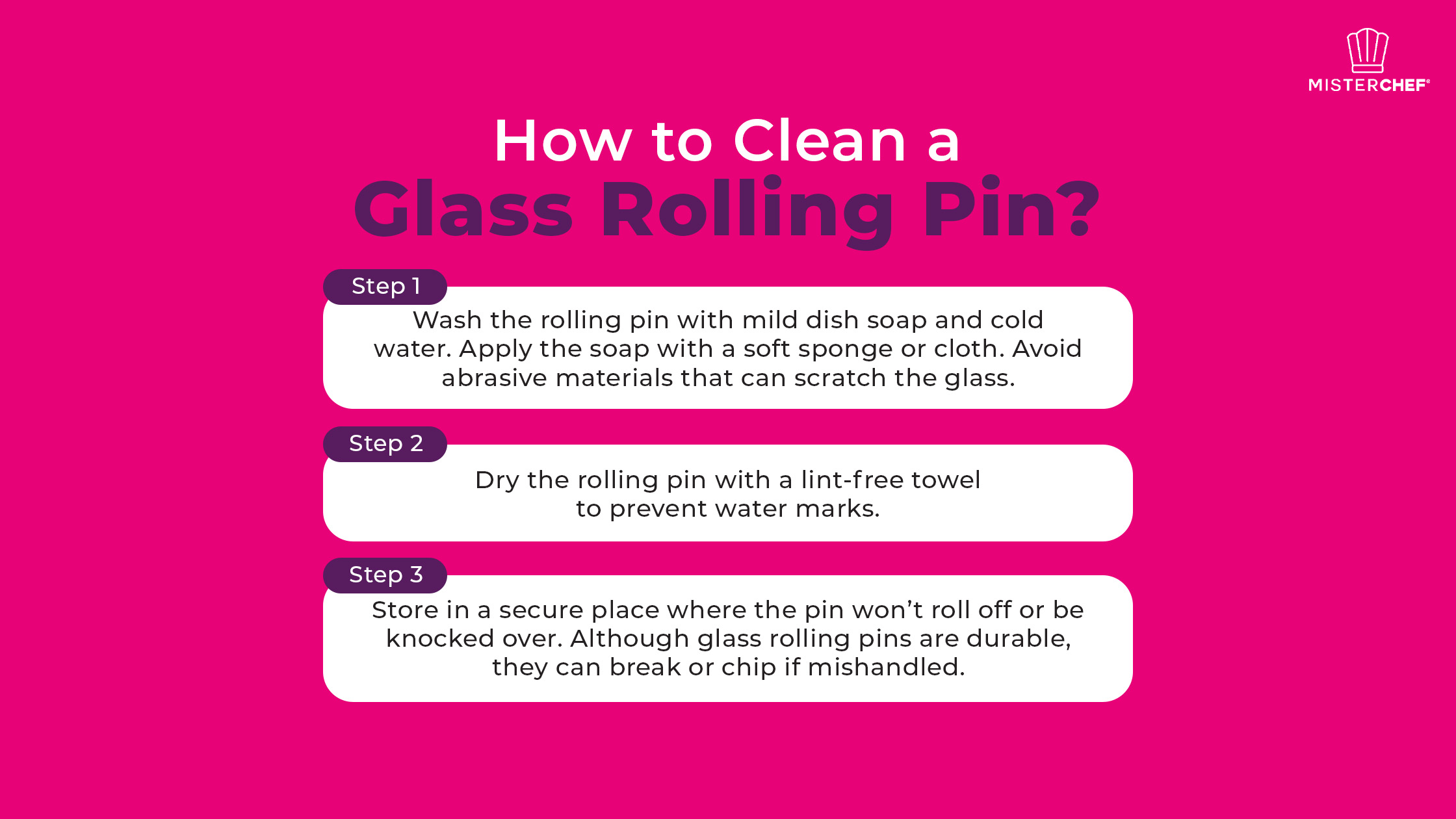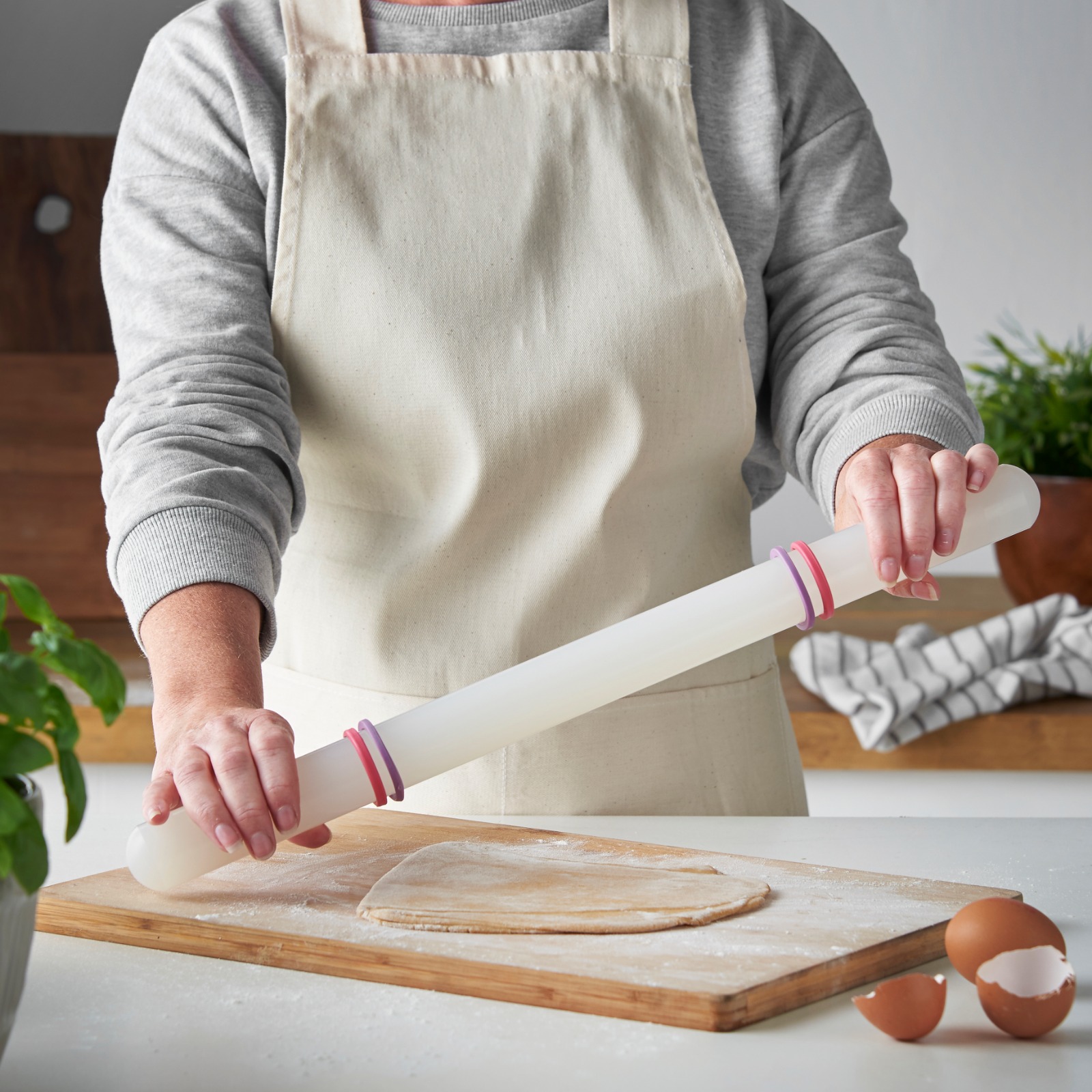A rolling pin is often used to flatten dough for pies, pastries, cookies, and more. They usually come in different materials like wood, plastic, glass, metal, and more. Since they come in so many different materials, the cleaning methods can vary. In this guide, we’ll show you the right way to clean each type of rolling pin.
How to Clean a Wooden Rolling Pin

Wooden rolling pins are made from hardwoods like maple, cherry, or walnut. The thing with wooden rolling pins is porous and can absorb moisture when washed. When this happens, the wood can swell, crack, and at times even rot. To prevent this from happening, here’s a guide on how to clean wooden rolling pins:
- Right after use, wipe your wood rolling pin with a clean dry rag to remove any dirt or food particles.
- If there are any stuck-on particles remaining, use a few drops of mild dish soap on the cloth. Gently scrub any stubborn dough bits off the surface. Rinse the cloth thoroughly and wipe the rolling pin to remove any soapy water. Do not soak the rolling pin in water.
- Immediately after washing, dry thoroughly with a towel. Allow the pin to air dry completely before storing.
- After it’s all dried out, condition your rolling pin with food-grade mineral oil, lemon oil, olive oil, or coconut oil to prevent it from drying out and cracking. Apply a small amount of oil with a clean cloth and light coat the entire surface of the pin. Let the oil soak for a few hours or overnight, then wipe off any excess oil.
How to Clean a Stone Rolling Pin
Stone rolling pins are made from marble or granite. Like stainless steel, they’re great for rolling out dough and pastries that need to stay cold. Here’s how to clean them:
- Wipe down the surface with a damp cloth to remove any dough and flour.
- If there are stubborn residues, wash with a mild dish soap and warm water. Do not use acidic cleaners (like those with vinegar or lemon juice) as they can damage the stone.
- Rinse the rolling pin well with water to remove all soap traces.
- Dry the stone rolling pin thoroughly with a soft towel.
- If you notice stains on the stone, you can make a paste of baking soda and water. Apply this paste to the stained areas, let it sit for a few minutes, then gently scrub with a soft cloth. Rinse and dry afterward.
How to Clean a Stainless Steel Rolling Pin

Metal or stainless steel rolling pins are popular for rolling out pastries that need to stay cold. They’re especially useful because their weight helps flatten pastry more easily. Here’s how to clean a metal or stainless steel rolling pin:
- Wash the rolling pin with warm water and mild dish soap. Use a soft sponge or cloth to gently scrub away any dough or residue. Do not use abrasive scrubbers as they can scratch the surface.
- After washing, rinse completely to remove any soap. Stainless steel is resistant to rust, but soap residues can leave spots or film on the surface.
- Dry with a soft towel.
- If your rolling pin has developed stains or a filmy buildup, use a mixture of vinegar and water (equal parts) to wipe it down. For extra shine, you can use a stainless steel cleaner. Apply a small amount of cleaner to a cloth and rub the surface in circular motions, then wipe with a clean, dry cloth.
How to Clean a Plastic or Silicone Rolling Pin
Plastic or silicone rolling pins are a popular choice for rolling out sticky doughs. Unlike metal, wood, and stone, these materials are less likely to scratch or even absorb moisture, making them easier to clean. Here’s how to clean them:
- Wash the rolling pin with cold water and mild dish soap. Do not use hot water.
- Dry thoroughly with a clean towel.
- If your rolling pin is dishwasher safe, you can place it in the dishwasher for cleaning.
How to Clean a Glass Rolling Pin

Glass rolling pins are a relatively new invention. They usually have an opening on one end in which water can be filled to adjust the weight of the pin. Although they’re not very common, they’re getting there. However, cleaning them needs special care since glass is fragile. Here’s how to do it:
- Wash the rolling pin with mild dish soap and cold water. Apply the soap with a soft sponge or cloth. Avoid abrasive materials that can scratch the glass.
- Dry the rolling pin with a lint-free towel to prevent water marks.
- Store in a secure place where the pin won’t roll off or be knocked over. Although glass rolling pins are durable, they can break or chip if mishandled.
Summary
Regular cleaning is essential to maintain your rolling pin, regardless of the material it’s made from. By following the appropriate cleaning methods outlined in this guide, you can ensure that your rolling pin remains in top condition for years to come.
Looking for a rolling pin that won’t stick or stain? Try MisterChef’s High-Grade Polyethylene Rolling Pins! Engineered for durability and ease, our rolling pins promise a non-stick experience with minimal effort. Shop with us today.







